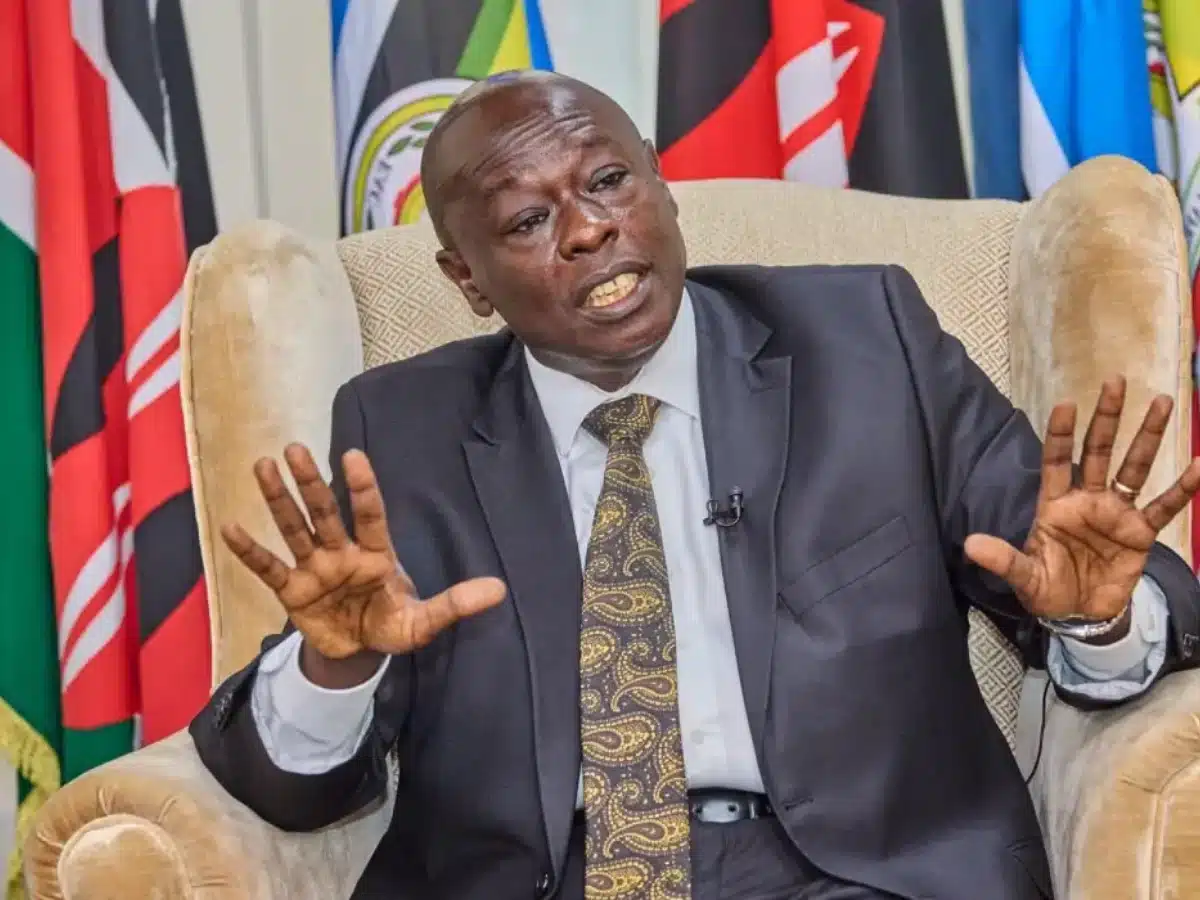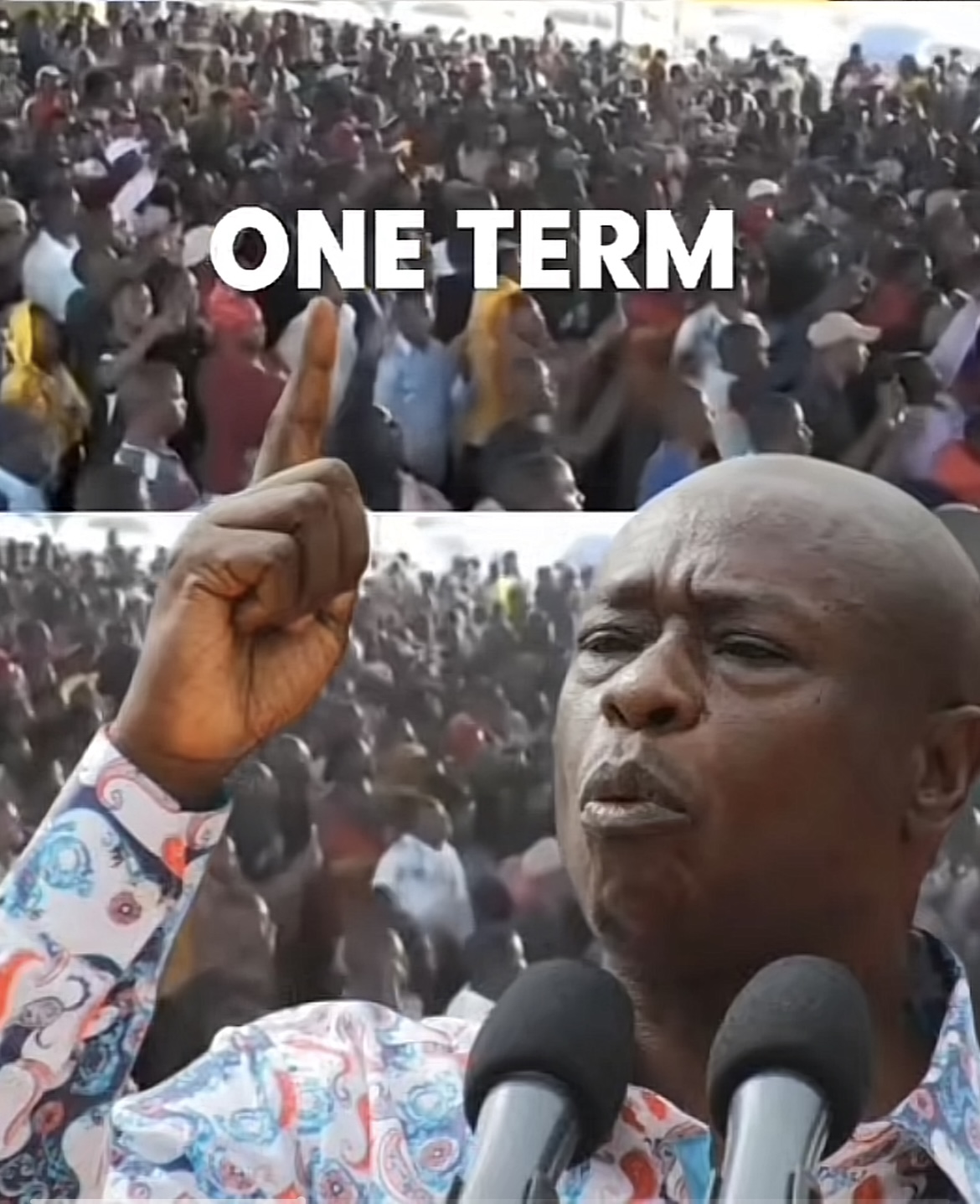Preamble: The Illusion of “WAN-TAM” and the Call for Transformative Leadership
Beyond the clamor of nightclub celebrations and the echo chamber of social media, a sobering political reality is emerging in Kenya, one that demands a reckoning with the hollow promises of Rigathi Gachagua’s “WAN-TAM” rhetoric. Far from constituting a coherent political ideology or a substantive manifesto, “WAN-TAM” is a fleeting slogan, a mirage of populism that collapses under scrutiny.
True political capital cannot be forged by merely spotlighting the failures of opponents; it must be built on a robust agenda, demonstrable abilities, and a proven track record. As Kenya’s youthful electorate awakens to this truth, the inadequacy of Gachagua’s platform lays bare the need for leadership rooted in transformative ideas rather than recycled political theatrics.
The Hollow Core of “WAN-TAM” and Its Misalignment with Kenya’s Youth
Rigathi Gachagua’s political platform, colloquially branded as “WAN-TAM,” represents a continuation of Kenya’s entrenched, personality-driven, and ethnically charged political paradigm, which starkly misaligns with the aspirations of the nation’s youthful demographic. As Kenya’s electorate increasingly skews younger with the majority of voters aged 16-39 there is a palpable demand for a radical departure from the cyclical, uninspired leadership of the past.

Cunning propagandist Rigathi Gachagua knows how to finesse the sprawling landscape of dumbed-down media and content creation
Gachagua’s “WAN-TAM” initiative, far from embodying the revolutionary credentials needed to address this generational shift, emerges as an empty spectacle, devoid of substantive ideas and mired in the same ethnic and personality-based politics that have long stifled Kenya’s progress.
This critique interrogates the hollowness of Gachagua’s agenda, exposing its intellectual and ideological impotence as a recycled motif of a boomer generation tethered to outdated political frameworks.
The Boomer Betrayal: How Kenya’s Older Generation Squandered a Nation’s Promise
The generation of Kenyan boomers, born between 1940 and 1970, has been complicit in perpetuating a political landscape marred by tribal biases and the manipulative machinations of self-serving politicians. Seduced by the euphoria of post-independence optimism, they inherited a nation brimming with potential complete with functional infrastructure, social amenities, and economic promise yet failed to interrogate the hollow promises of their leaders.
Instead of fostering a unified national identity, they clung to rural and tribal loyalties, allowing politicians to exploit these divisions for electoral gain.
This susceptibility to ethnic rhetoric, amplified by a mainstream media that peddled divisive narratives, has entrenched a cycle of poor electoral choices, leaving a legacy of governance that prioritizes patronage over progress and sows the seeds of the systemic challenges Kenya faces today.
Squandered Opportunities: The Boomers’ Failure to Engage Critically
The boomers’ era of plenty, marked by accessible jobs, social halls, and public spaces, was squandered through a collective failure to engage in critical discourse about governance. Rather than questioning the rebranding of colonial-era projects or holding leaders accountable for economic mismanagement, they were swayed by propaganda and the allure of charismatic figures. Vernacular radio stations and corrupt clergy further muddied their judgment, filling their minds with toxic narratives that glorified tenderpreneurs and importers while ignoring the collapse of manufacturing and agriculture.

BOOMERS: The generation that has kept Kenya trapped in a cycle of property, hopes to re-invent their careers on the backs of Gen Z protests
This intellectual abdication allowed boomers to celebrate leaders who dismantled public resources selling off school plots and stadiums for private gain while remaining nostalgic for an imagined golden era under figures like Jomo Kenyatta, whose tenure was more about consolidating power than building a nation.
A Legacy of Decay: The Consequences of Generational Myopia
The consequences of this generational myopia are starkly evident in Kenya’s degraded infrastructure and fractured social fabric. Boomers, having enjoyed the benefits of a functional system in their youth, dismissed the need for playgrounds, sports facilities, and robust public institutions, viewing them as dispensable relics of their own past.
Their obsession with nonsensical sideshows whether church-sanctioned corruption or media-fueled tribal feuds has left younger generations to grapple with a nation stripped of its potential.
By consistently electing leaders based on familiarity and ethnic allegiance rather than competence, boomers have perpetuated a mutated form of Stockholm syndrome, embracing their oppressors while bequeathing a legacy of underdevelopment and division that Kenya’s youth must now confront and dismantle.
The Performative Charade of “WAN-TAM”: A Lack of Vision

The WanTam euphoria has been hijacked by passive entrepreneurs cashing in on mass-disillusionment
At its core, “WAN-TAM” is less a coherent policy platform than a performative charade, a veneer of populism that fails to articulate a transformative vision for Kenya’s future. Gachagua, alongside his political allies within the Kenya Kwanza (KK) coalition, operates within a framework of musical chairs a reshuffling of familiar faces from past regimes, many of whom have served in various capacities under the same systems they now claim to reform.
This lack of ideological novelty is not merely a failure of imagination but a structural flaw rooted in the generational disconnect between Kenya’s political elite and its youthful electorate.
The 16-39 demographic, which forms the backbone of Kenya’s voting population, is not clamoring for recycled rhetoric or ethnic loyalty but for what can be termed the “Five E’s”: Economic Renaissance, Economic Emancipation, Economic Ownership, Economic Independence, and Natural Energy Control.
These aspirations, inspired by the resource-driven prosperity of nations like Kuwait, Qatar, the UAE, and Saudi Arabia, reflect a desire for systemic economic transformation that Gachagua’s platform conspicuously fails to address.
Intellectual Bankruptcy: The Absence of a Policy Framework
The hollowness of Gachagua’s agenda is most evident in its lack of a concrete policy framework to deliver the economic revolution demanded by Kenya’s youth. His rhetoric, steeped in regional and ethnic mobilization, prioritizes loyalty to personalities over ideas, perpetuating a political culture that has historically entrenched division and stagnation. This approach is emblematic of a broader generational malaise among Kenya’s boomer politicians, who remain caged in a zero-sum game of ethnic patronage and personality cults.
Such politics, while effective in consolidating power among older voting blocs, are increasingly irrelevant to a younger electorate that views economic empowerment and systemic change as non-negotiable. Gachagua’s inability to transcend this paradigm renders his “WAN-TAM” narrative impotent, a relic of a bygone era masquerading as a forward-looking agenda.
Structural Disconnect: Failing to Address Kenya’s Challenges
Moreover, the intellectual bankruptcy of Gachagua’s platform is compounded by its failure to engage with the structural realities of Kenya’s economic and social challenges. The youth’s demand for economic ownership and independence requires bold policies such as equitable land reform, investment in renewable energy, and the democratization of economic opportunities none of which feature prominently in Gachagua’s public pronouncements or the broader KK agenda. Instead, “WAN-TAM” appears to lean on vague promises and populist sloganeering, offering little in the way of actionable strategies to dismantle the entrenched systems of inequality that have left Kenya mired in economic dependency and resource mismanagement.
This absence of revolutionary credentials underscores Gachagua’s disconnect from the electorate’s pulse, particularly the youth, who are acutely aware of the kind of leadership required to realize their vision but find no such figure in the current political landscape.
The Intellectual Dishonesty of “WAN-TAM”
Rigathi Gachagua’s “WAN-TAM” mantra, cloaked in the revolutionary fervor associated with Kenya’s Gen Z movement, is a masterclass in intellectual dishonesty, leveraging reverse psychology to prop up the faltering legitimacy of William Ruto’s presidency.
By framing “WAN-TAM” as a grassroots call for change, Gachagua attempts to co-opt the youth’s demand for systemic overhaul, yet the rhetoric subtly reinforces the notion that Ruto deserves to complete his full term, regardless of mounting evidence to the contrary.

Ever the loyal assistant, Rigathi Gachagua plays the role of defending his president when he was in office and now outside of office
This narrative conveniently sidesteps the fiscal realities crippling Kenya spiraling national debt, a crumbling healthcare system, and widespread public unrest driven by economic hardship. Far from embodying the Gen Z aspiration for economic emancipation and independence, “WAN-TAM” serves as a diversionary tactic, repackaging Ruto’s administration as a stabilizing force while ignoring its failure to address the structural inequalities and resource mismanagement that fuel public discontent.
This sleight of hand betrays the youth’s call for transformative leadership, instead perpetuating a status quo that benefits the entrenched elite.
The Reverse Psychology of Defending Ruto’s Tenure
The intellectual dishonesty embedded in “WAN-TAM” lies in its attempt to harness Gen Z’s revolutionary energy while covertly defending Ruto’s tenure through a narrative of inevitability and patience. By invoking the youth’s frustration with the older generation’s failures, Gachagua’s rhetoric implies that Ruto’s leadership, despite its shortcomings, is a necessary bridge to future progress an argument that crumbles under scrutiny given the administration’s fiscal mismanagement and neglect of social services.
The skyrocketing debt, coupled with the collapse of public healthcare and education, paints a dire picture of a nation in distress, yet “WAN-TAM” sidesteps these realities, urging Kenyans to endure rather than demand accountability.
This reverse psychology manipulates the Gen Z movement’s momentum, framing dissent as impatience and Ruto’s completion of his term as a prerequisite for change, when in fact, the public’s restlessness signals a deeper rejection of a leadership that prioritizes political survival over the urgent need for an economic renaissance.
A Relic of the Past: The Enduring Flaw of Boomer Politics
The recurring motif of Gachagua’s generation its fixation on ethnic or personality-based politics remains the Achilles’ heel of Kenya’s governance.
This approach has perpetuated a cycle of underdevelopment, corruption, and exclusion, leaving the nation “stuck in the mess” it finds itself in today. Gachagua’s “WAN-TAM” charade, far from challenging this status quo, reinforces it by offering a repackaged version of the same tired playbook. For a country whose future hinges on the energy and ambition of its youth, the impotence of Gachagua’s ideas is not just a personal failing but a systemic tragedy.
Kenya’s next president and government, as envisioned by its young voters, must embody a radical break from this paradigm a leader capable of delivering the Five E’s through visionary, inclusive, and transformative policies.
Until such a figure emerges, Gachagua and his ilk will remain relics of a past that Kenya’s youth are determined to leave behind.

